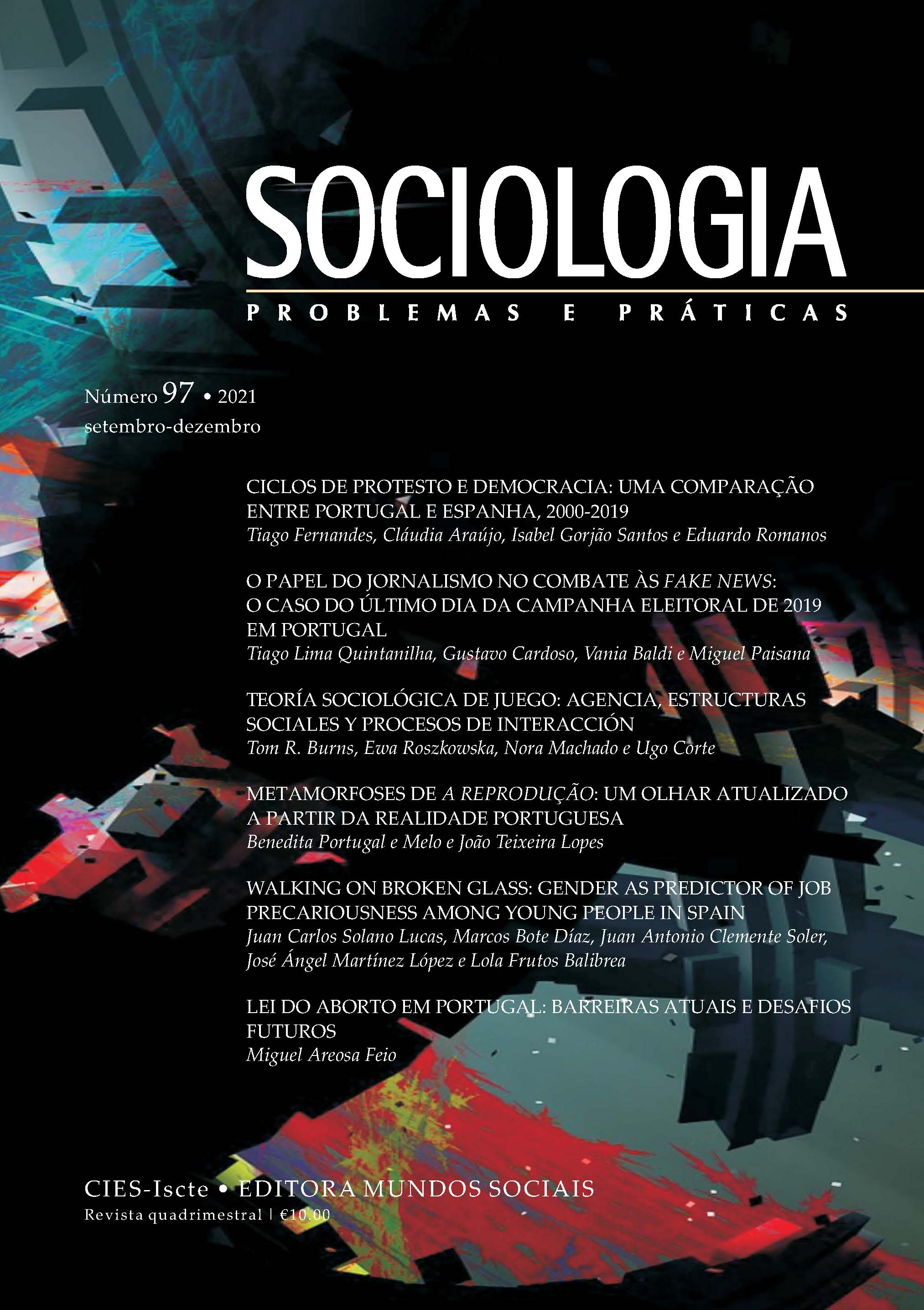Théorie des jeux sociologique: agence, structures sociales et processus d’interaction
DOI :
https://doi.org/10.7458/SPP20219724910Mots-clés :
théorie des jeux classique, théorie des jeux sociologique, agence, interaction, règles socialesRésumé
Cet article présente deux théories sociologiques, alternatives à la théorie des jeux classique. Ces théories des jeux basées sur les sciences sociales analysées ici présentent des reformulations de la théorie des jeux classique en mathématiques appliquées (CGT). Elles offrent une importante avancée par rapport à la théorie des jeux classique, grâce à l’application de concepts centraux en sociologie et en psychologie sociale, ainsi qu’aux résultats des analyses empiriques sur les comportements individuels et collectifs. Ces deux théories émergentes dans les sciences sociales sont, l’une basée sur la théorie des systèmes, la théorie des jeux en sciences sociales (SGT — social science game theory); l’autre la théorie interactionniste d’Erving Goffman fondée sur la psychologie sociale (IGT – interactionist Goffman theory). Chacune de ces théories, centrées toutes les deux sur l’analyse des jeux sociaux, sont présentées et contrastées avec la théorie des jeux classique, en soulignant le rôle central des règles sociales dans la structuration et la régulation du comportement humain, et la nécessité de les inclure dans toute analyse.
Téléchargements
Publiée
Numéro
Rubrique
Licence
Authors who publish in this Journal must agree the following terms and conditions:
- Authors retain copyright and grant the Journal the right to first publication, while simultaneously agreeing to a Creative Commons Attribution License, which allows others to share their work on condition that they cite the original author(s) and recognise that the latter’s work was first published in this Journal.
- Authors are authorised to enter into additional contracts separately, for non-exclusive distribution of the version of the work that is published in this Journal (e.g. publication in an institutional repository or as a book chapter), subject to recognition of initial publication in this Journal.



